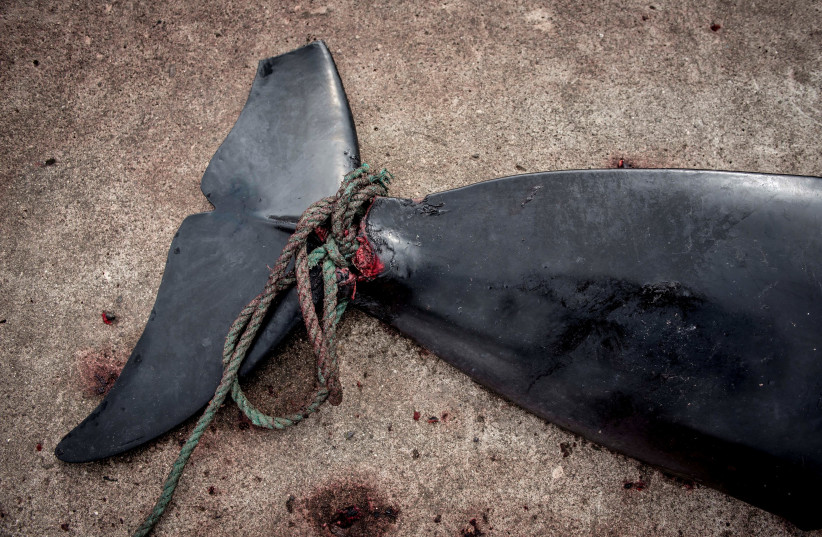Passengers aboard the Ambassador Cruise Line ship Ambition bore witness to the "grindadrap," the traditional Faroese pilot whale hunt shortly after arriving in Torshavn, NPR reported.
Pilot whales, known also as blackfish or pothead whales, are members of the dolphin family. Encyclopedia Brittanica describes these marine mammals as characterized by “a round bulging forehead, a short beaklike snout, and slender pointed flippers.” They’re typically 13 to 20 feet long and can live for decades. Females of the short-finned variety live an average of 63 years.
Passengers about the ship, which included conservationists with ORCA, a charity organization focused on protecting marine life and habitats, described a brutal slaughter of a large group of pilot whales.
The killing of the pilot whales
On their website, ORCA writes that passengers aboard the Ambassador looked on as dozens of small boats and jet-skis corralled the pod of pilot whales in shallow water. People participating in the “grindadrap” then drove hooks into the animals and dragged them ashore. Finally, others speared the dolphins with lances until they were dead.
ORCA observers noted that it took as long as 30 seconds for some of the pilot whales to die. According to the reports, among the dolphins slaughtered were nine calves, some of whom ORCA conservationists estimated were no older than one month.

The whole event occurred within 20 minutes, at the end of which, 78 individual pilot whales had been killed.
The Ambassador Cruise Line has apologized to its passengers.
"We fully appreciate that witnessing this local event would have been distressing for the majority of guests onboard," Ambassador told NPR. "Accordingly, we would like to sincerely apologize to them for any undue upset."
The cruise line additionally asked its passengers to refrain from purchasing local whale and dolphin meat so as to not support the hunt of the animals.
Despite criticism, the Faroese government has defended the tradition, saying that the hunt is not carried out for profit. NPR reported that the government claimed that although some meat is occasionally available for purchase in supermarkets or on the dockside, the meat is mostly “distributed for free in the local community.”
Additionally, the government added that it is required by law that the animals are dispatched as quickly and humanely as possible and that the typical catch of around 800 pilot whales does not make an ecological impact on the population of 778,000.
Nevertheless, the Faroese have come under fire in the recent past for killing larger numbers of dolphins.
ORCA CEO Sally Hamilton slammed the Faroese pilot whale hunt, telling NPR that, "it defies belief that the Faroese authorities allowed this activity to take place in clear sight of a cruise ship packed with passengers. At some point, the Faroese authorities will have to decide if its marine life is a more attractive tourist proposition when it is alive than when it is being killed."
The Environment and Climate Change portal is produced in cooperation with the Goldman Sonnenfeldt School of Sustainability and Climate Change at Ben-Gurion University of the Negev. The Jerusalem Post maintains all editorial decisions related to the content.
